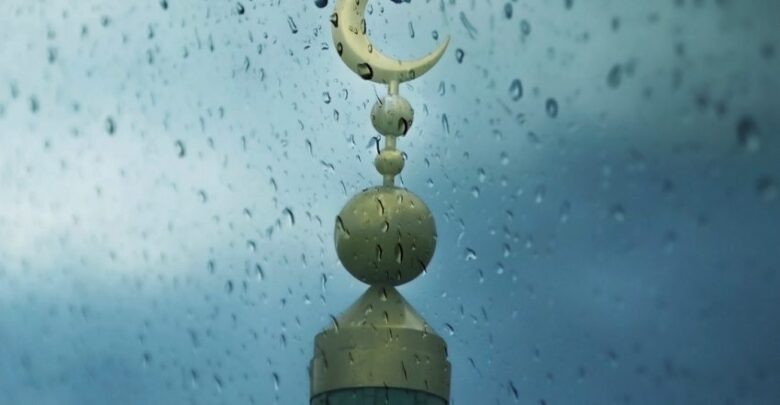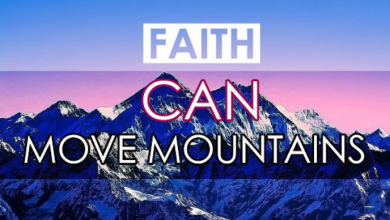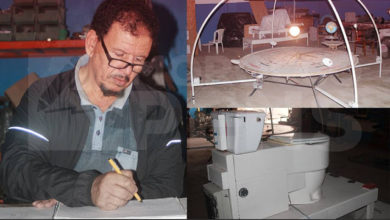
New York, USA
Have you ever faced a situation in which you predicted being different in an unfamiliar culture could create problems or even fear for you? What did you do to overcome this? Did you run away, or did you face your fear? Was the fear justified?
Living in Morocco for 24 years, there was no way I could have some fingers pointing at me for being Muslim because the country’s main religion is Islam. However, when I traveled overseas, especially to a non-Muslim country like America, I predicted that I would be more likely to witness some fingers, if not all, being pointed at me for the simple reason I was born as a Muslim. I continue to believe that the media plays a crucial role in glorifying or even tarnishing the image of anything one can think of. This belief added to my fear since the media often does negative reports on Islam.
Although race, ethnicity, and gender are considered the most common prejudiced phenomena nowadays, anti-Muslim should be added to this list. The demonizing of Arabs and Muslims in America began well before the tragedy of September 11, 2001 (Akram 61). Islamophobia, the fear against or prejudice towards Muslims, has existed in history for a long time. It was originally developed as a concept in the late 1990s by political activists to draw attention to rhetoric and actions directed at Islam and Muslims in western liberal democracies (Bleich 180). After 2011, Muslims in America and France, for instance, have been subjected to several ways of discrimination. No thanks to the media, some Muslims are rarely treated well, at times exposed to all terms of violence, and always looked down upon for being Muslims. It is unfair to generalize the issue!
On a personal level, as of today, I have not been exposed to discrimination from Americans during my three years living in the USA. I have as many Christian friends as my Muslim ones. Knowing that I am Muslim, my co-workers respect my religion and so does my director. For example, I work a late shift on Fridays because I must go to the mosque for my Friday prayers. Having a chapel at work, I can pray my everyday prayers as well. Thus, I have been able to continue practicing my religious practices even while working with no problems or anxiety.
Overall, I have not seen any form of discrimination from Americans. On the contrary, most of them have been friendly and helpful to me. In 2017, I spent several weeks in Atlanta, Georgia. My American mom, as I call her, invited me to stay at her house. In addition to her great hospitality, I cannot forget that day when she offered to give me a ride to the mosque on a Friday. I did not want to bother her as I knew her knee hurt at the time. “I am taking you to the closest mosque. I know how important this is to you.” She added. She waited for me in the parking lot for a good 90 minutes, reading one of her magazines. There is no way I can forget this wonderful gesture. Although she is Christian, she told me that day that she once put on her headscarf and prayed in a mosque while she was in Egypt back in 2012. Her willingness to experience my faith reinforced my opinion of the kindness and open-mindedness of many Americans toward Islam.
Other examples of this openness to learn about and to accept Islam have occurred. Not long ago, a Christian female co-worker asked me questions about Halal food. She was eager to know what the difference between this type of food and the American one was; I tried my best to break it down for her and reveal the differences. She also asked me how Muslims prepare for their prayers and how they clean themselves. Wuḍūʾ (Arabic) or ablotion, is an Islamic process of cleansing parts of the body. Her last question was about Ramadan, a holy month when Muslims around the globe fast from sunrise to sunset for a whole month. Unable to contain her curiosity, she asked me why we fast. “We fast to remember the poor! To feel the way these poor people feel when they have no food to eat.” I added. She was WOW astonished by my response saying it is wonderful to think about others. Last Ramadan, another Christian friend fasted the whole week stating she wanted to empathize with me. Based on these personal experiences, among many others, I cannot say that all Americans are anti-Muslims or have Islamophobia. I believe only a few of them are. Part of these few are more likely ignorant and never opened a book. The rest are blindly driven by the media with some blinders on. I feel as if I must say that America is a country of freedom of speech and freedom of religion par excellence!
Unlike America, France is a bad example when we talk about freedom of speech and religion and is a good example of hypocrisy in my opinion. I am not referring to the French people but the French government; it’s not the people, but the politics. I can’t agree more with Napoleon Bonaparte when he said that in politics, an absurdity is not a handicap. Not long ago, French President Emmanuel Macron said that Islam is in crisis. He continues to say that France is defending the freedom of speech and expression. He has been a big fan of Charlie Hebdo, a satirical newspaper that projected cartoons about the prophet of Islam Muhammad (PBUH) onto government buildings. This act was a stupid move from both Charlie Hebdo and Macron supporting the latter. It is stupid because nobody wants 1.9 billion people to be against them. In response to Macron’s backing Muhammed (PBUH) cartoons, Muslims around the world called to boycott French goods. Thus, Muslims in France often live there in unjust fear.
Another example of religious discrimination in France involves not permitting Muslim women to wear headscarves or hijabs. No one has the right to tell people what to wear, at least in a country that pretends to have freedom of speech and religion. This is right for them and wrong for Muslims! A Muslim woman who covers her head is making a statement about her identity. Anyone who sees her will know that she is a Muslim and has a good moral character. Many Muslim women who cover are filled with dignity and self-esteem; they are pleased to be identified as Muslim women (SHADID 37).
France should not put all Muslims in one basket saying that they are all terrorists and violent. Historically, France has used violence to establish colonies right and left in Africa. So, it has no right to give the world some lessons on ethics. Using the USA as a better model for the treatment of Muslims and freedom of religion would make France a safer and more desirable place for Muslims to reside and could eliminate much of their fear.
What can Muslims do to help overcome this fear and to begin to alleviate this discrimination if they are living in anti-Muslim countries? They can prove their value to these countries in several ways. For example, some important inventions have been created by Muslims. Take the algorithm, for example. It was developed by Mohammad ibn Musa al-Khwarizmi (780–850). Al-Khwarizmi’s contributions to mathematics, geography, astronomy, and cartography established the basis for innovation in algebra and trigonometry. His systematic approach to solving linear and quadratic equations led to algebra (Bahman 72). Without Algorithm, Mr. Macron, none of your Charlie Hebdo guys would be able to use their computer designing cartoons mocking my prophet. Before you talk, try to understand first, Mr. President!
Secondly, as I was browsing YouTube two months ago, I saw a non-Muslim revealing his experience with Muslim families in America. Anthony Kapel is a CNN political contributor, author, and lawyer. He said you would be the happiest person in the world if a Muslim family moved in next door to you. He justified this by saying that the chances of their kids getting into trouble is greatly reduced because the Muslim community has the lowest crime rate, the highest entrepreneurship, and the highest educational attainment for women in the country. He also proclaimed that Muslims are the model American community. Kapel raised an important point when Muslims (he refers to them as geniuses) do not feel safe in America. To him, he thinks this is so bad for the American economy in the long-term. These two examples are just some among many. It will take forever to reveal all the inventions created by Muslims, Mr. Macron! If you Google it, you will find that without Rachid Elyazami, a Moroccan-Muslim scientist and engineer, no one, including you, would be able to use the mobile phone. He was the one who created lithium-ion batteries.
The world must find effective ways to overcome religious discrimination. People have the right to choose their own religion. They have the right to freedom of belief. As a reminder, Islam is like other religions. As professor Reza Aslan, an Iranian-American scholar of religious studies once put cogently, “Islam doesn’t promote violence or peace. Islam is just a religion, and like every other religion in the world, it depends on what you bring to it. If you are a violent person, your Islam, your Judaism, your Christianity, or your Hinduism is going to be violent.” He added.
In reference to the opening questions, moving to the USA was the perfect move for me. I have only positive experiences to share and have been allowed to achieve my dreams for a more fulfilled life—the reason I took a chance to immigrate. I chose to face my fear—fears that were luckily not justified in my case. I have worked hard, kept an open mind, made new American non-Muslim friends, and feel a part of the American community. It is my dream that other Muslims in other countries will be able to find what I have found in the USA. Thomas Jefferson stated it perfectly. “The God who gave us life gave us liberty at the same.” (David)
Works Cited
Akram, Susan M. “THE AFTERMATH OF SEPTEMBER 11,2001: THE TARGETING OF ARABS AND MUSLIMS IN AMERICA.” Arab Studies Quarterly, vol. 24, no. 2/3, 2002, pp. 61–118. JSTOR, www.jstor.org/stable/41858412 Accessed 4 Nov. 2020.
Bahman MEHRI. “From Al-Khwarizmi to Algorithm.” Olympiads in Informatics, 2017, Vol. 11, Special Issue, 71–74. Sharif University of Technology, Iran. https://ioinformatics.org/journal/v11si_2017_71_74.pdf
Bleich, Erik. “Defining and Researching Islamophobia.” Review of Middle East Studies, vol. 46, no. 2, 2012, pp. 180–189. JSTOR, www.jstor.org/stable/41940895 Accessed 4 Nov. 2020.
Read, David. “This Day in History–The God Who Gave Us Life Gave Us Liberty.” 4 July 2020,www.fulcrum7.com/news/2020/7/4/this-day-in-history-the-god-who-gave-us-life-gave-us-liberty. Accessed 15 Nov. 2020
SHADID, W., and P. S. VAN KONINGSVELD. “MUSLIM DRESS IN EUROPE: DEBATES ON THE HEADSCARF.” Journal of Islamic Studies, vol. 16, no. 1, 2005, pp. 35–61. JSTOR, www.jstor.org/stable/26199648 Accessed 4 Nov. 2020.



